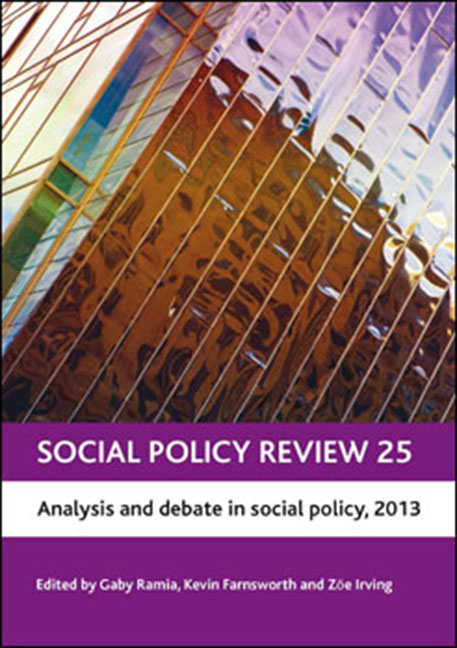Book contents
fifteen - Women, families and the ‘Great Recession’ in the UK
Published online by Cambridge University Press: 03 February 2022
Summary
Introduction
Since the onset of recession in 2008, little attention has been paid to the question of whether men's and women's experience of the downturn in the UK jobs market has differed, or to the implications of these gender differences for families. This chapter is an initial attempt to examine these issues for the UK. It assesses how, over the four years since the onset of the ‘Great Recession’ at the end of 2008, and a period of prolonged labour market weakness, male and female employment and unemployment rates, hours of work, wages and family incomes have changed. Analysing this wide range of indicators allows us to build a rich picture of how recession has affected men's and women's labour market position and their families’ incomes.
The year 2008 marked the end of a long period of economic growth. Under New Labour, low- to middle-income families had seen substantial improvements in their incomes, employment rates had grown and the incidence of poverty had fallen. While these gains were partly a result of favourable economic conditions, policy changes were also of considerable importance (Hills and Stewart, 2005). But in the third quarter of 2008, the British economy entered recession for the first time in 15 years and compared to the last recession in 1990–93, the role of women in the workforce (and consequently at home) had changed considerably. Between 1992 and 2008, employment grew by five percentage points (ppt) to 67%, while the gender pay gap fell by almost 10 ppt to just over 20% in 2008. At the same time, women's employment and earnings are of increasing importance in helping families avoid poverty: first, because a growing number of families are headed by a single female; and, second, as within couples, not having a second earner is increasingly associated with a high risk of poverty (Harkness, 2010). Women's work is therefore of much greater importance to families’ economic well-being today than in earlier recessions, and the question of whether the current recession has had a different effect on male and female employment is therefore one of considerable policy significance. To date, there has been little research in this area and it is this gap in the literature that this chapter aims to fill.
- Type
- Chapter
- Information
- Social Policy Review 25Analysis and Debate in Social Policy, 2013, pp. 293 - 314Publisher: Bristol University PressPrint publication year: 2013



